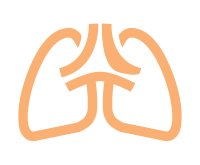Cessation of Tobacco
The well-documented dangers of tobacco use include an increased risk of many cancers, heart disease and chronic obstructive pulmonary disease (COPD). Cessation counseling combined, when necessary, with medications, helps patients successfully quit the habit.
What happens when you quit smoking
It's never too late to quit smoking. Quitting smoking now improves your health and reduces your risk of heart disease, cancer, lung disease, and other smoking-related illnesses.
Good reasons for quitting
20 Minutes
20 Minutes
Heart rate and blood pressure drop to normal.
12 Hours
12 Hours
Carbon monoxide level is back to normal and heart does not have to pump as hard.
48 Hours
48 Hours
Smell and taste better. Risk of heart attack drops.
1 Week
1 Week
Breathe better.
1 Month
1 Month
Cough less.
1 Year
1 Year
Heart disease risk cut in half.
Helpful tips to quit tobacco
Nicotine is a powerful addiction. Quitting is hard, but don't give up. Many people try 2 or 3 times before they quit. Each time you try to quite, the more likely you will be to succeed.
Lifestyle Medicine
An evidence-based approach to preventing, treating and even reversing diseases by replacing unhealthy behaviors with positive ones.






